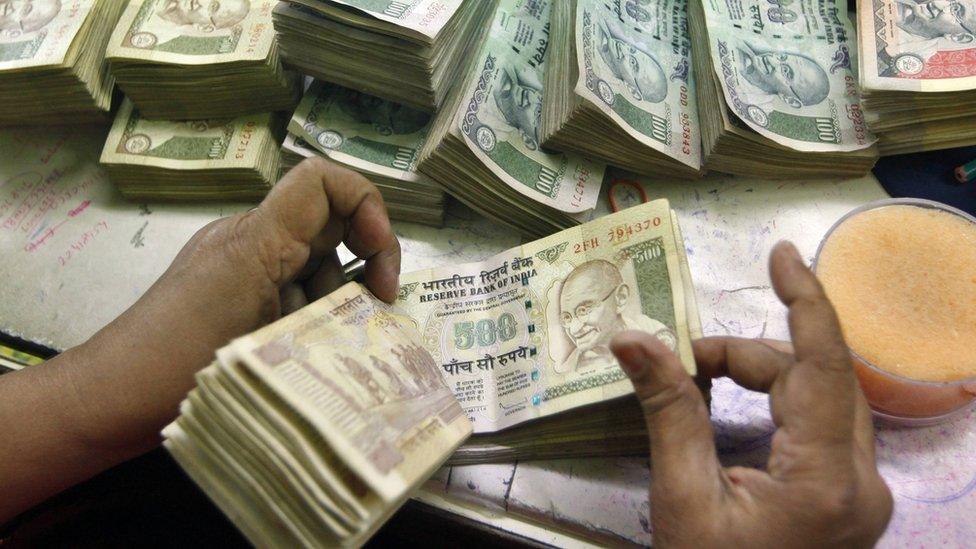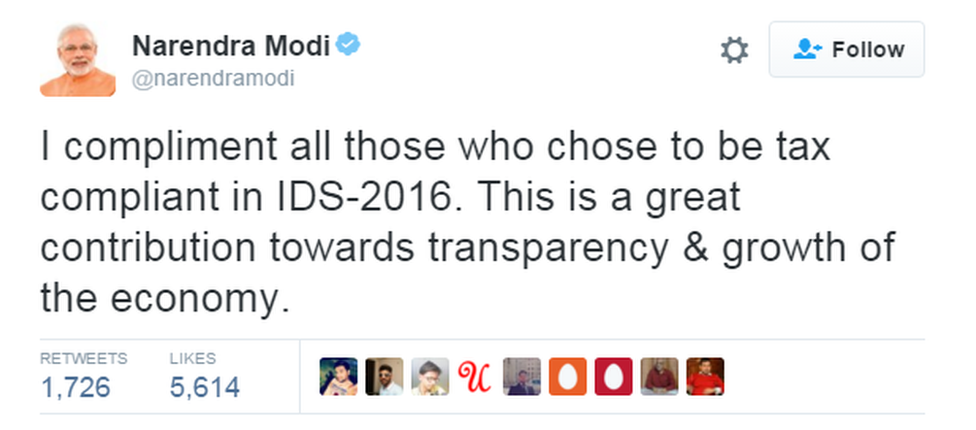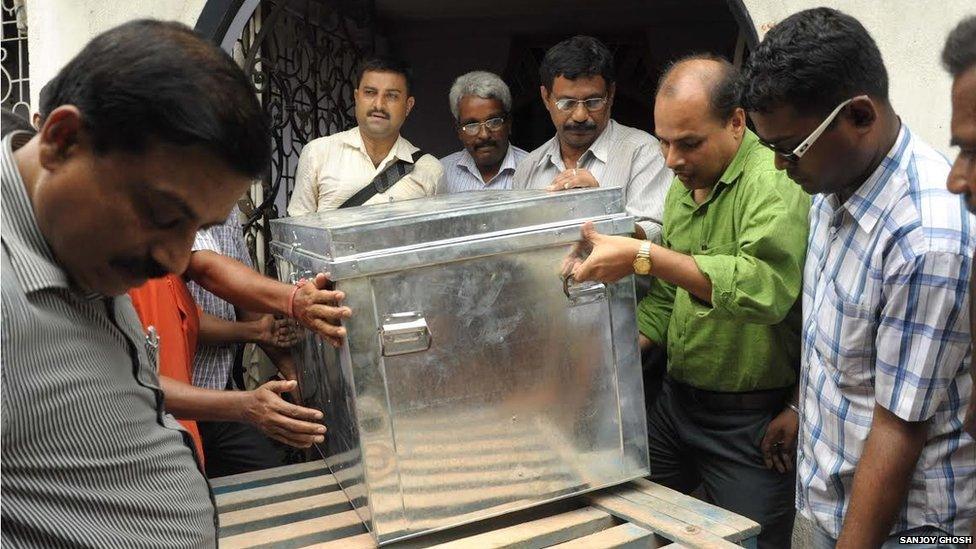India tax evasion amnesty uncovers hidden billions
- Published

Undeclared income or "black money" is a huge issue in India
A tax evasion amnesty in India has prompted tens of thousands of people to declare more than $9.5bn (£7.3bn) in undeclared income and assets.
Finance minister Arun Jaitley said the four-month window that ended on Friday brought in 64,275 declarations.
All were offered immunity from prosecution in return for paying tax, a surcharge and a penalty.
It is estimated that the government could raise nearly $4.5bn (£3.4bn) from the scheme.
Undeclared income or "black money" is a huge issue in India.
The government contacted about 700,000 suspected tax evaders earlier this year, urging them to declare hidden income and assets.
They were told they would not be pursued by the authorities if they came clean and paid a penalty.
Those who came forward included a group of street food owners in Mumbai who are said to have declared nearly $7.5m.

The BBC's Sanjoy Majumder in Delhi says that despite the huge numbers, the amount declared is only a fraction of the country's undisclosed earnings.
It does not account for money stashed in Swiss banks and overseas tax havens which some government investigators believe amounts to around $500bn, he says.
During India's 2014 elections, Prime Minister Narendra Modi promised to crack down on corruption and black money.
In a series of tweets, external on Saturday, he declared the amnesty "successful", saying it was "a great contribution towards transparency and growth of the economy".
The government says the money raised will be spent on public welfare.
Authorities have been under pressure to act following the release of the so-called Panama Papers in April that lifted the lid on how the rich and powerful use tax havens to hide their wealth. About 500 Indians were among those named.
- Published19 August 2015

- Published21 March 2016
